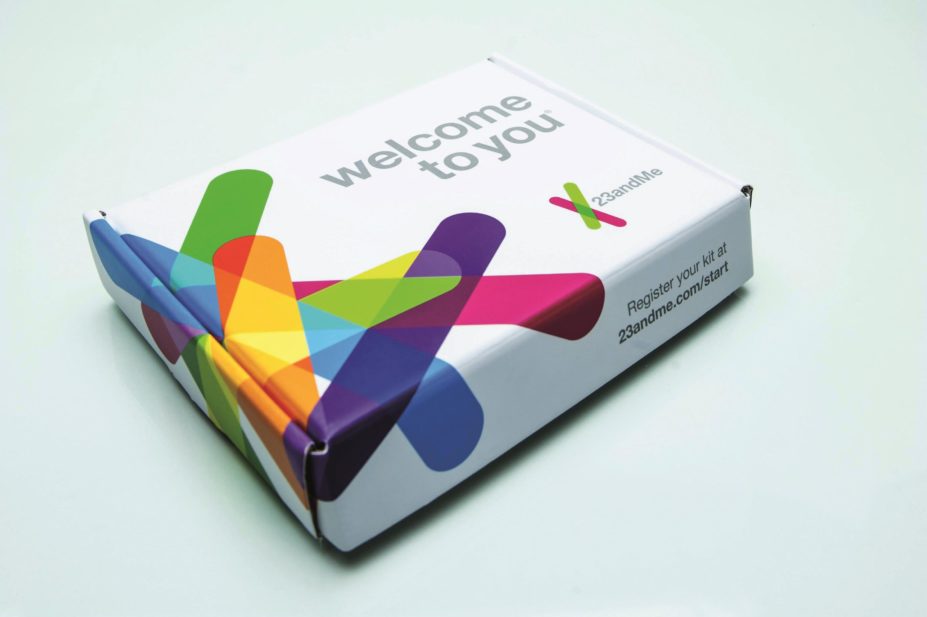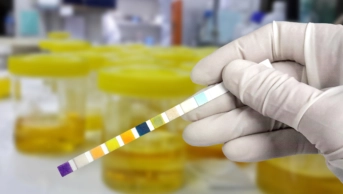
ZUMA Press, Inc. / Alamy
In late 2014, the Google-backed company 23andMe announced that it would start selling its direct-to-consumer (DTC) genetic test in Canada and the UK — despite being banned by the US Food and Drug Administration (FDA) from selling it in the United States following misleading marketing.
The genetic test provides information for around 108 health conditions for which some degree of evidence exists, including 44 inherited conditions, 12 drug responses, 12 genetic risk factors and 41 traits. Some conditions on the list are both obvious and innocuous. For example, hair colour, eye colour, and height are among the 41 traits. But many of the results are about important health conditions, and are clearly supposed to incite a change in behaviour.
Genetic testing is appropriate — and can be life saving — when doctors and genetic counsellors interpret complex results and map out the various courses of action. However, DTC genetic testing companies, such as 23andME, deliberately eschew the framework between clinician and patient. Under the banner of personal empowerment, DTC companies proclaim that their products confer a new level of control over one’s health, and that to have your genome sequenced is a liberating act that is both exciting and personally responsible. In practice, however, results may lead to unnecessary anxiety or a false sense of security.
False alarm
Lukas Hartmann submitted a saliva sample to 23andMe in November 2010 to find out whether he was genetically predisposed to any conditions. He received a report reassuring him that he will probably die when the time came from a mix of heart attack and prostate cancer; nothing out of the ordinary there. But a year later, he received an email from 23andME asking whether he wanted it to reveal some potentially disturbing, life-altering detail about his genome found in his original test. He clicked through, and was told that he carried two mutations linked to limb-girdle muscular dystrophy that could cause him to lose his ability to walk and potentially end in early death[1]
.
A self-described nerd, Hartmann responded by downloading his raw genetic data from 23andMe and scouring the internet for any further information. After several sleepless nights of research, he discovered that while he did have the two mutations of concern, they were actually located on different genes, unlike the mutations associated with the studies that prompted the email alert. Hartmann was able to catch this critical distinction, but 23andMe’s algorithm was not.
Not so fast
The FDA has expressed its concerns over misleading marketing of DTC genetic tests for some time. In November 2013, the agency sent a letter to 23andMe chief executive Anne Wojcicki noting that after “many interactions with 23andMe, we still do not have any assurance that the firm has analytically or clinically validated the [Personal Genome Service] for its intended uses.” The letter informed 23andMe that it was prohibited from providing US consumers with health information until it provided evidence that its test works, noting the gravity of harm that can result from inaccuracies[2]
.
The FDA is not alone in raising concerns about the accuracy of DTC gene test results. A 2010 report by the US Government Accountability Office (the investigative arm of Congress charged with examining matters relating to the receipt and payment of public funds) found that “identical DNA samples yield contradictory results” from four different DTC companies and the results were “misleading and of little or no practical use.” Also that year, the Nuffield Council on Bioethics in the UK (an independent body advising policymakers and stimulating debate in bioethics) cautioned: “The powerful rhetoric used to promote these developments should be treated with caution, since it can downplay potential harms and exaggerate the usefulness of the technologies concerned[3],[4]
.
In 2013, a study published in Nature found that predictions of disease risk from different DTC genetic testing companies still varied significantly[5]
. The research team, led by epidemiologist Cecile Janssens at Erasmus University Medical Center in Rotterdam, the Netherlands, compared methods and results from 23andMe, DeCODEme, and Navigenics by simulating genotype data for 100,000 people and predicting the risks of six diseases based on each company’s method. They found substantial differences among predicted risks owing to diverging formulas and the way that each company determined average risk. The variation in outcome led each company to encourage radically different courses of action based on the same DNA. DeCODEme, based in ReykjavÃk, Iceland, and Navigenics, based in Foster City, California, have both stopped selling their DTC tests.
Growing elsewhere
While DeCODEme and Navigenics have gone out of business, and despite the FDA’s limitations in the United States on 23andMe, it continues to market its product elsewhere. It has accumulated some 750,000 clients in more than 50 countries.
Unlike the FDA, the Department of Health in England and Health Canada have determined that 23andMe’s test is not a medical device. And the company’s UK website claim its reports are intended for informational purposes only and do not diagnose disease or illness. But when a test tells you that you carry a BRCA gene mutation linked to hereditary breast and ovarian cancer, you are unlikely to receive the news as non-medical.
The BRCA variants account for only about 5% of breast cancers. Women who have the mutations on which 23andMe reports have a significantly elevated risk, yet the majority will not go on to develop cancer. Nonetheless, Angelina Jolie’s announcement in May 2013 that her BRCA1 mutation led her to obtain a preventative double mastectomy caused what is now known as the “Angelina Jolie effect”, with the number of DNA tests for breast cancer mutations increasing by two-and-a-half times[6]
.
One of the FDA’s explicit concerns is that some of the women worried about their risk of these cancers will opt for DTC genetic tests and receive overly deterministic or inaccurate information, leading to unnecessary surgeries, treatments, or screenings — or, for those who find they do not have these particular variants, to a false lull of complacency.
Social impacts
Unrealistic claims about gene tests also encourage a false sense of genetic determinism. Increasing numbers of “previvors” or “worried well” would cause huge burdens for the medical community and tie up resources for a predominately privileged citizenry[7]
. Most diseases and traits do not reliably stem from the tiny snippets of DNA that current DTC genetic tests examine. In reality, most of us can learn more from stepping on the bathroom scale than from a DTC gene test.
Jessica Cussins is project associate at the Center for Genetics and Society, California.
References
[1] Hartmann L. Why 23andMe has the FDA worried: It wrongly told me I might die young. Quartz; Obsessions 27 November 2013.
[2] Gutierrez A. 23andMe, Inc. 11/22/13. US Food and Drug Administration. Inspections, compliance, enforcement, and criminal investigations. Document number: GEN1300666. 22 November 2013.
[3] Direct-to-consumer genetic tests: misleading test results are further complicated by deceptive marketing and other questionable practices. GAO-10-847T; 2010.
[4] Medical profiling and online medicine: the ethics of ‘personalised healthcare’ in a consumer age. Nuffield Council on Bioethics 2010.
[5] Kalf R, Mihaescu R, Kundu S et al. Variations in predicted risks in personal genome testing for common complex diseases. Genetics in Medicine 2013;16:85–91.
[6] Briggs H. Breast cancer test ‘Angelina Jolie effect’ found. BBC News 19 September 2014.
[7] Dickenson D. In me we trust: public health, personalized medicine, and the common good. The Hedgehog Review 2014;16(1).


